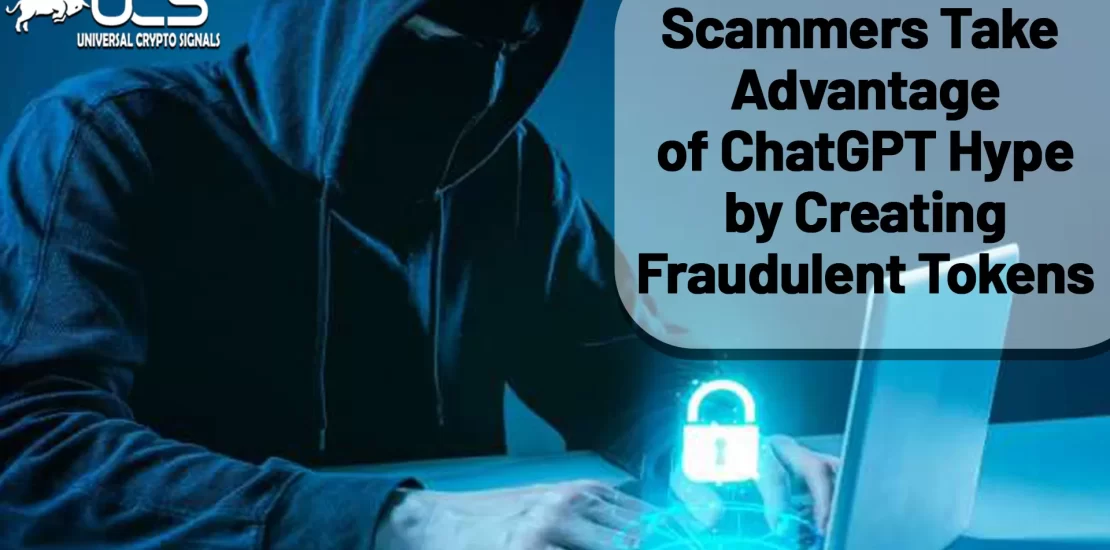- February 22, 2023
- Posted by: Subham Seth
- Category: News

The newest type is SCAM where fake ChatGPT tokens are circulated and clearly targeted towards the growing audience of cryptocurrency traders. A number of scammers are using the name ChatGPT – an AI model created by OpenAI – to lure the public into investing in virtual currencies that do not actually exist. Using the example above, this blog post explores how these scams work, the red flags to consider when selecting such schemes, and how to avoid getting entangled with the cons.
The Appeal of ChatGPT and Cryptocurrency
ChatGPT, an up-to-date language model, has recently caused a rather distinct buzz due to its ability to generate texts resembling the writing of people in response to input stimuli. At the same time, in the world of cryptocurrencies, we are now witnessing a true renaissance: new tokens and actual projects appear almost daily. Scammers have cunningly combined these two trends to create a seemingly attractive investment opportunity. Include the following:
How the Scam Works?
Creation of Fake Tokens: They create tokens that they want people to believe belong to ChatGPT, which is a very wrong move by scammers. These tokens could have suggestive names as well as logos and could look quite real. In many cases, the scammers use names and logos that are very similar to authentic ones to make their scams look realistic.
Marketing and Promotion: Often, such fraudsters actively advertise these fake tokens on social media, groups and forums, as well as through the creation of look-alike websites with the sole purpose of deception. They can argue that the tokens are a sort of investment in the creation of the ChatGPT or are needed to utilize new features of the AI.
Fake Airdrops and Presales: In order to attract investors, many scammers unpack fake airdrops (free distributions of tokens) or presale such tokens. Thus, they indicate that their application can generate high profits and provide access to additional features, which only they can offer and only for a certain period.
Phishing and Fraudulent Transactions: Cybercriminals guide investors to other sites that call on them to disclose their personal details and ask them to pay using Bitcoin or even Ethereum. After the payment is made, the scammers disappear with the cash, leaving the investors with nothing as they struggle to trade on the fake market.
Warning Signs of a Scam
To protect yourself from falling victim to these scams, it’s crucial to recognize the warning signs:
- Too Good to Be True: Avoid any big promises or claims of providing high returns or access to some kind of information not available to the public. Furthermore, no investment can entitle one to profit, especially if the investment undertaking is legal.
- Lack of Official Information: To avoid falling victim to fake tokens or investment opportunities, users should always ensure to cross-check the tokens or the investment before making any decision with official authorities. When there is a piece of information from a source you are unfamiliar with, seek out an announcement from a recognizable organization and compare the details.
- Pressure Tactics: Crooks use a variety of tactics to influence your behavior; one of the tactics they use is the urgency of the situation. This is because these services are likely to involve something that is luring you into making hasty decisions without giving you enough time to analyze the investment opportunity.
- Phishing Attempts: Think carefully before providing personal information to someone who contacts you by phone, by text message, or by email or if someone directs you to a website address that looks unfamiliar. Before clicking on the link given it is perceived to be coming from a special site, check the authenticity of the sender.
- No Real Association: Other things to consider include whether the token is available on the leading cryptocurrency trading platforms and if it has seals of approval or affiliations with reputable stakeholders. These fake tokens will not originate from well-established entities and, therefore, will not be vouched for.
Protecting Yourself from Fake ChatGPT Token Scams
Here are some practical steps you can take to safeguard against these scams:
Research Thoroughly: To invest in any token, you should go through a research process without fail. Check on the authenticity of the project with the individuals managing the social project. Utilize, for example, scientific journals, discussion forums, and other channels in order to gain as much knowledge as possible.
Use Reputable Platforms: Avoid using new and unproven cryptocurrency exchange platforms and point to credible cryptocurrency exchange and trading platforms. Do not enter your financial details or make purchases on websites with little to no existence.
Enable Security Measures: Always apply 2FA to your accounts, and make sure to secure your private passwords with great vigilance. It also holds the form of advice, which includes changing your password frequently and refraining from reusing the same password on different accounts.
Report Suspicious Activity: In case you come across any token or investment opportunity under the above descriptions, kindly report it to the enforcement agencies and concerned platforms. It may also help save other people who may have been scammed in the future from being scammed again.
Stay Informed: Update your knowledge about the novelties and trends appearing in the cryptocurrency and AI sectors. Having knowledge of new trends that are creating an environment for change or possible risks that must be avoided can aid in recognising scams.
Add a comment
You must be logged in to post a comment.



